Being in the field of education, we share the same goal of ensuring that students get the best learning outcomes so they can reach their full potential. As the education landscape changes, we need to continuously adapt our resources and teaching practices to ensure their relevance in the current context.
Pearson invites you to join the sessions in our Leading in Learning Webinar Series led by experts who will provide actionable insights to help educators like you successfully navigate the current education landscape. Since we aim to build a strong community of empowered educators, Pearson also offers you an opportunity to connect with other instructors in each session.
We encourage you to register to any (if not all) sessions as each session is designed to cater to the different aspects of pedagogy.
Session 1: Introduction to GenAI for Higher Ed Faculty
Tuesday, October 1st 2024 @ 12:00pm EST
This one-hour webinar demystifies the rapidly evolving world of Generative AI (GenAI) and its applications in education. Engage in an interactive session that builds a foundational understanding of GenAI, practical skills, and explores ethical considerations for responsible use.
Watch Recording
Watch the Recording
Speakers
Amanda Bickerstaff
CEO/Founder, AI for Education
Amanda is the Co-Founder and CEO of AI for Education. A former high school biology teacher and EdTech executive with over 20 years of experience in the education sector. She has a deep understanding of the challenges and opportunities that AI can offer. She is a frequent consultant, speaker, and writer on the topic of AI in education, leading workshops and professional learning across both K12 and Higher Ed. Amanda is committed to helping schools and teachers maximize their potential through the ethical and equitable adoption of AI.

Amanda Bickerstaff
Session 2: Pearson ED.tech Symposium
Wednesday, October 9th 2024 @ 11:00am EST
Join us for a day filled with game-changing insights on the future of education from the leaders in higher ed. Indulge your AI-curiosity and explore the cutting edge of educational technology with experts in the fields of AI and education.
Speakers
Kimberly Bryant
Founder and CEO, Black Innovation Lab by Ascend Ventures and Founder of Black Girls CODE
Kimberly Bryant has revolutionized the technology landscape by empowering young women of color to embrace coding and the STEM fields. She continually integrates cutting-edge technologies into her educational programs, like the AI for Social Good initiative, which teaches students about artificial intelligence while emphasizing its ethical applications to environmental and social justice issues. Kimberly received her bachelor's degree in electrical engineering from Vanderbilt University.
Ethan Mollick, PhD
Author of Co-intelligence: Living and Working with AI
Ethan Mollick is an Associate Professor at the Wharton School of the University of Pennsylvania, where he studies and teaches innovation and entrepreneurship, and also examines the effects of artificial intelligence on work and education. He also leads Wharton Interactive, an effort to democratize education using games, simulations, and AI. His academic papers have been published in top management journals and his research has been covered by CNN, The New York Times, and other leading publications. He has created numerous teaching games on a wide variety of topics. Prior to his time in academia, Ethan co-founded a startup company, and he currently advises a number of startups and organizations. Mollick received his PhD and MBA from MIT’s Sloan School of Management and his bachelor’s degree from Harvard University.

Ethan Mollick

Kimberly Bryant
Previous Webinar Series Sessions
Honouring Indigenous Wisdom: Integrating Indigenous Perspectives into Course Curriculum
May 14, 2024 12:00 PM (EST)
Indigenous Representation in the Classroom: What does it mean to acknowledge Indigenous people and learning in the classroom? Why is it important and how does it impact all learners outside of the classroom, especially as they move into the workforce?
New! Attendees will earn a credly badge for attending this event - a credential that recognizes your professional development.
Watch Recording
Watch the Recording
About the Speaker
About the Speaker
Justin Molander, CPA, CMA, is a member of the Sapotaweyak Cree Nation. He teaches in the business and accounting departments at Kwantlen Polytechnic University and Langara College. His 20+ years of experience spans from financial analysis and market research to financing high growth, capital intensive companies in a broad range of industries. Early in his career, Justin also worked with the B.C. Legislature supporting MLA’s and Cabinet Ministers in a variety of capacities.

Justin Molander
Innovating Instruction: Case Teaching in the University or College Classroom
This one-hour webinar, "Innovating Instruction: Case Teaching in the University or College Classroom” is tailored for faculty who wish to enhance their instructional methods. This session is designed to provide an immersive introduction to the case teaching methodology, emphasizing its adaptability and effectiveness across academic disciplines. Whether you teach in the sciences, business, humanities, or any other field, you will discover how case-based teaching can transform your classroom into a dynamic learning environment that promotes critical thinking, problem-solving, and practical application of knowledge.
During the webinar, you will explore the core aspects of case teaching, including how to effectively integrate real-world scenarios into your curriculum to capture the imagination and engagement of students. Using a sample case and assignment, you will be introduced to the process of designing and selecting compelling case studies that are tailored to the learning objectives and unique characteristics of your discipline. You'll learn strategies for fostering a classroom atmosphere where open discussion and student participation are encouraged and facilitated.
By the end of this webinar, you will be equipped with a clear, practical understanding of how to apply case teaching techniques in your teaching practice, enhancing both student learning outcomes and your own satisfaction as an educator.
New! Attendees will earn a credly badge for attending this event - a credential that recognizes your professional development.
Watch Recording
Watch the Recording
About the Speaker
About the Speaker
Jana Seijts is an award-winning Lecturer of Management Communications at the Ivey Business School at Western University. She is also an EDI consultant and instructor working with the TRACOM Group to help organizations seamlessly merge EDI and Social Style training. Jana received her B.A., B.Ed., and M.A. from the University of Toronto and has over 25 years of experience teaching communication courses at Western University, the Schulich School of Business, York University, and the University of Manitoba. Jana has also taught Gender and Society at Fanshawe College and numerous pre-service teaching seminars in the Faculty of Education at the University of Manitoba. She is a bestselling author of business cases, including “When the Twitterverse Turns on You” and “Who Should Take the Fall?” featured in Harvard Business Review. She is co-author of A Concise Guide to Technical Communication, IMPACT! A Guide to Business Communication, and Technical Communication (forthcoming 2024). In 2020, Jana won the prestigious Western University USC Teaching Award.
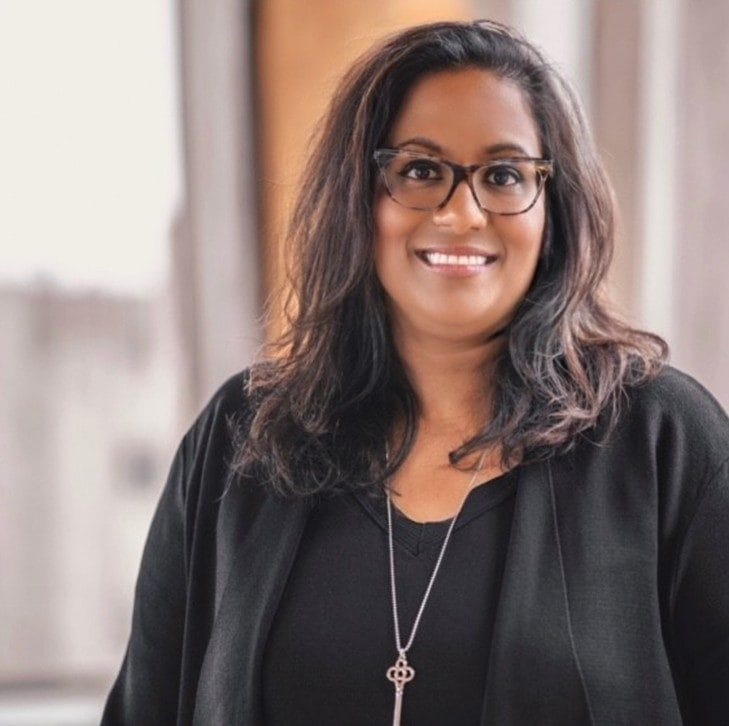
Jana Seijts
Award-winning educator (Ivey School of Business at Western University) and author
The Landscape of Bias in Higher Education
This session is intended for instructors interested in learning more about the landscape of bias in the context of teaching and learning in higher education.
The purpose of this session is to:
- Explore the existing evidence on bias in the teaching and learning context
- Provide an overview of how bias can affect decision-making
- Explore case studies that illustrate how bias might intersect with various aspects of learning in higher education (e.g., assessment practices, group work, feedback, self-evaluation, student evaluations of teaching, selection/mentorship of student researchers)
- Suggest practical strategies for mitigating the impact of bias in the context of teaching and learning

Fiona Rawle
The Good and The Bad: Why Generative AI has Changed Grading Forever.
Generative artificial intelligence (GenAI) is changing nearly everything about higher education, not least how we conduct evaluations.
In this webinar, Dr. Conrad will use interactive examples to discuss three ways that the technology is transforming the process of grading. The first consideration (“The Bad”) is the way that students can and do use GenAI to quickly generate work and submit it as their own. We will explore strategies for future-proofing evaluations against the technology. The second consideration (“The Good”) is how GenAI enables entirely new approaches to evaluation. Examples of rapidly generated AI feedback will be given. This feedback can help students deepen their critical thinking skills in ways that humans simply can’t, given our financial constraints, which ultimately improves learner experiences.
Finally, the presentation will conclude with a discussion about the importance of including instructors in at least parts of the grading, even in environments that heavily utilize automated grading approaches.
Learn More
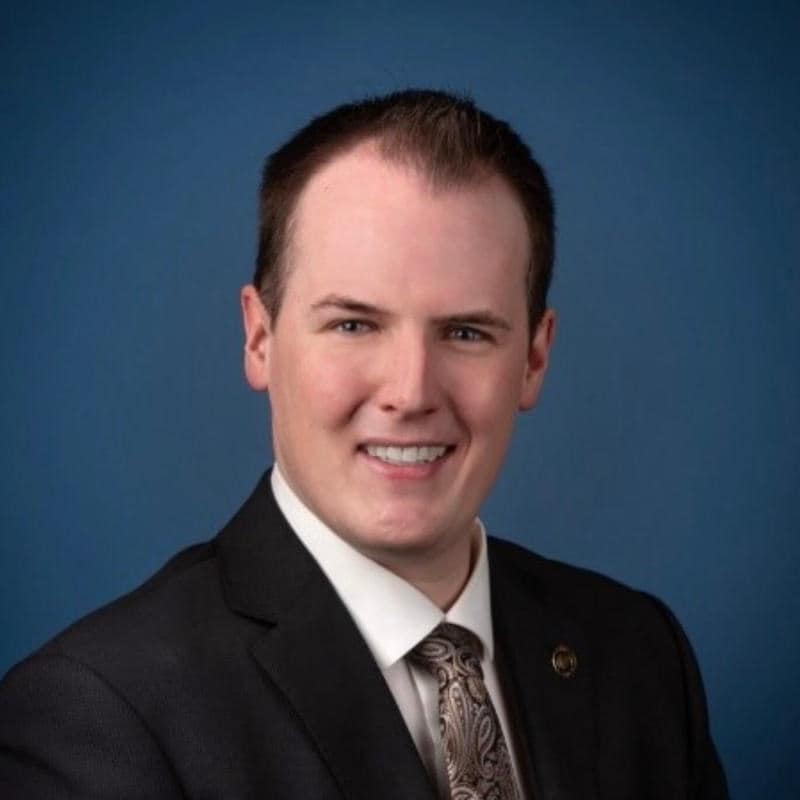
Dr. Colin Conrad, an information technology scholar and university educator, Dalhousie University
Colin Conrad, Ph.D. is an information technology scholar and university educator whose expertise spans the management, computer science, and cognitive sciences disciplines. He oversees projects that push disciplinary boundaries, usually related to educational technology, social media, or cognition. He holds a deep conviction for experiential learning, which drives his educational mission to lead the cultivation of Canada's next generation of digital talent. He currently works as an Assistant Professor at Dalhousie University’s Faculty of Management and is a Co-Director of Dalhousie’s new College of Digital Transformation.
Register
Watch the Recording

Dr. Colin Conrad
Information technology scholar and university educator, Dalhousie University
You can’t Pour from an Empty Cup: Strategies to Manage Stress and Burnout for Professors.
Join us for an insightful conversation with Hamza Khan, author of "The Burnout Gamble," as we explore the critical issues of stress and burnout faced by professors in the academic world. Khan, a top-rated educator, serial entrepreneur, and respected thought leader, will share his expertise on effective strategies to manage these challenges. Discover practical solutions, self-care techniques, and insights into maintaining a healthy work-life balance.
Learn More

Hamza Khan, Future of Work and People-First Leadership Expert, Bestselling Author, and Educator
Hamza Khan believes the future of work is more human, not less. He's on a mission to help organizations achieve inclusive and sustainable growth by rehumanizing the workplace. Rather than be reactive to rapidly changing external conditions, Khan shows leaders how to embrace a bold "people first" approach to better support diverse, engaged, and connected teams in a hybrid environment. In doing so, they'll unlock the tremendous upside of a loyal, thriving, and innovative workforce. Rehumanizing workplaces is the winning strategy of the future.
Khan is a multi-award-winning entrepreneur, bestselling author, and world-renowned keynote speaker whose TEDx talk “Stop Managing, Start Leading” has been viewed over two million times. He has spoken on various global stages, including the World Youth Forum, and his clients have included some of the world’s most dynamic companies and organizations, such as Microsoft, PepsiCo, LinkedIn, Deloitte, Salesforce, TikTok, and hundreds of colleges and universities. These leading organizations trust Khan to inspire modern leadership, unleash purposeful productivity, transcend burnout culture, and embrace constant change.
As a trusted thought leader, Khan’s insights have been featured by notable media outlets such as Inc., Bloomberg, and Business Insider. He is also the bestselling author of The Burnout Gamble: Achieve More by Beating Burnout and Building Resilience and Leadership, Reinvented. Through his writing, speaking, teaching, and executive coaching, Khan empowers people to evolve and thrive in the future of work.
Watch Recording
Watch the Recording

Hamza Khan
Future of Work and People-First Leadership Expert, Bestselling Author, and Educator
Moving Forward to a New Better: Successfully Navigating Trends in Higher Ed
We are not returning to the old normal—on many levels that structure we enjoyed before the pandemic does not exist anymore. Neither should we plan for a move forward to the new normal, as the use of the word normal conveys a limitation in our thinking and boundaries that will limit that thinking.
As the higher education landscape continues to shift, many previous assumptions around enrollment and the student experience no longer apply. To move forward with clarity and confidence, higher education leaders must regularly revisit their strategic pillars, stay attuned to changes, and pivot as new opportunities arise.
Learn More

Tom Hierck, Globally recognized educator and author
Tom Hierck has been an educator since 1983 in a career that has spanned all levels and many roles in public education. He has presented to schools, districts, community leaders, and business groups across North America with a message of celebration for those seeking to make a difference. His belief that “every student is a success story waiting to be told” has led him to work with teachers and administrators to create positive school cultures and build effective relationships that facilitate learning for all students. He is the author/co-author of 21 books. His work has resulted in being recognized as Top 10 of the world's leading Education Professionals for 2022.
Watch Recording
Watch the Webinar Recording

Tom Hierck
Globally recognized educator and author
Confessions of an “EDI Killjoy”: Just Acronyms...Or Academic Justice?
Building off – and riffing on – critical race theorist and postcolonialist scholar Sara Ahmed and her figure of the “feminist killjoy,” this talk situates and presents Dr. Tommy Mayberry and their work across equity and inclusivity as an “EDI killjoy”…as someone whose “failure to be happy [in this work] is [often] read as sabotaging the happiness of others.”1 While there are victories, yes, and there are increments of powerful progress, there is still much to be done, and this work is and remains incredibly difficult, demanding, and intimidating work to do and to keep doing.
How do we, then, as post-secondary instructors incorporate principles of “EDI,” “DE&I,” “JEDIA,” etc. into our classes, curricula, and pedagogies toward building – and sustaining – more inclusive teaching and learning environments for us and for our students? Join Dr. Tommy as they critically, but still caringly, share how these terms as acronyms can (and often do) forget and leave behind important aspects of each respective letter as they become homogenized, totalized, and monolithic in their nounifications.
At the heart of these nounified acronyms is the larger, critical project of academic justice. And it is through academic justice as a more truthful umbrella term for the hard, hard work of decolonization, anti-racism, Indigenization, and equity, diversity, inclusivity and belonging, as well as access and accessibility, that we can unlock and active real change into our teaching practices.
1Sara Ahmed, The Promise of Happiness, Duke UP, 2010: 66.
Learn More

Dr. Tommy Mayberry, Executive Director of the Centre for Teaching and Learning, University of Alberta
Tommy Mayberry, PhD (he/she/they) is the Executive Director of the Centre for Teaching and Learning at the University of Alberta. They are co-editor, with Lindsay Bryde, of the award-winning RuPedagogies of Realness: Essays on Teaching and Learning with RuPaul’s Drag Race (McFarland, 2022), have published their work in numerous journals and edited volumes, and have performed and presented their scholarship and research findings nationally as well as internationally in places such as Oxford, Washington DC, Tokyo, and Honolulu. Tommy earned their PhD (English) at the University of Waterloo and is a sought-after speaker on the topics of “Gender Pronouns and Cultures of Respect” as well as visual pedagogies and LGBTQIA+ inclusivity.
Watch Recording
Watch the Webinar Recording

Dr. Tommy Mayberry
Executive Director of the Centre for Teaching and Learning, University of Alberta
Beyond the Lecture: Creating Meaningful Learning Experiences in the Classroom
Student engagement has been a primary concern for many postsecondary educators across Canada. As a result of the pandemic challenges in recent years, educators have been compelled to devise ways to keep the students engaged in the classroom, whether it’s in-person or online.
As an award-winning communications lecturer for over 25 years, Jana is passionate about creating impact through effective and inclusive communication. In this session, Jana will share her expertise to look at ways to make the classroom come alive for students. Moving beyond the lecture helps us connect with students and have them engage with the course content in more meaningful and impactful ways.
Learn More

Jana Seijts, Award-winning educator (Ivey School of Business at Western University) and author
Jana Seijts is an award-winning Lecturer of Management Communications at the Ivey Business School at Western University. She is also an EDI consultant and instructor working with the TRACOM Group to help organizations seamlessly merge EDI and Social Style training. Jana received her B.A., B.Ed., and M.A. from the University of Toronto and has over 25 years of experience teaching communication courses at Western University, the Schulich School of Business, York University, and the University of Manitoba. Jana has also taught Gender and Society at Fanshawe College and numerous pre-service teaching seminars in the Faculty of Education at the University of Manitoba. She is a bestselling author of business cases, including “When the Twitterverse Turns on You” and “Who Should Take the Fall?” featured in Harvard Business Review. She is co-author of A Concise Guide to Technical Communication and IMPACT! A Guide to Business Communication. In 2020, Jana won the prestigious Western University USC Teaching Award.
A long-time advocate for Equity, Diversity and Inclusion (EDI), Jana co-founded Ivey’s Women’s Leadership and Mentoring Program geared towards helping develop the next generation of women leaders. She is also an executive member of Lean-In Canada: Toronto and works to provide learning and leadership opportunities for women in Canada’s most cosmopolitan city.
In addition to working with numerous international organizations, Jana is a Senior Lecturer at the Sri Lankan Institute of Information Technology, where she works with MBA and Undergraduate students to learn to navigate communication in a post-Covid world.
Watch Recording
Watch the Webinar Recording

Jana Seijts
Award-winning educator (Ivey School of Business at Western University) and author
You Want Me to Do What?
Optimally Supporting International (and All!) Students in the Context of Student-Centred Learning
Many of the international students we accept into our programs come from an Eastern educational tradition and thus may find many of our student-centred learning activities unfamiliar and even “wrong”. In this presentation Steve will highlight how you can optimal scaffold the learning for these students and enhance their intrinsic motivation based on the principles of self-determination theory. He will illustrate how autonomy, competence and relatedness can be supported with a context where students are asked to give constructive feedback to peers, and to learn from the feedback peers have applied to their draft compositions.
Learn More

Steve Joordens, 3M National Teaching Fellow, Educator (University of Toronto)
Professor Joordens teaches the very large Introduction to Biological and Cognitive Psychology course offered at the University of Toronto Scarborough as well as being the Director of the Advanced Learning Technologies Lab. His research focuses on educational practices that help develop the core skills of success in students - critical and creative thought, effective communication and collaboration, and enhanced metacognitive awareness. Much of the research emerging from that lab is mobilized within an educational technology called peerScholar, a technology now used in 10 countries, positively impacting over 300,000 students per year. The work of Joordens and his lab have been recognized by many awards at the institutional, provincial and national levels.
Watch Recording
Watch the Webinar Recording

Steve Joordens
3M National Teaching Fellow, Educator (University of Toronto)
Words Matter: Inclusive Language in the Classroom
Inclusive language is a hot topic right now as schools and organizations everywhere are engaging in new ways with diversity, equity, and justice issues. But contrary to popular belief, inclusive language isn't about “political correctness” or a list of “good” and “bad” words. Rather, it's a holistic approach that centers care, flexibility, and nuance.
In this webinar Alex Kapitan, inclusive language consultant and creator of Radical Copyeditor, will share powerful frameworks, tools, and practices to help you communicate in inclusive, caring ways with students of all identities and backgrounds.
Learn More

Alex Kapitan, Speaker, consultant, editor, and founder of Radical Copyeditor
Alex Kapitan is a queer and trans trainer, speaker, consultant, editor, and activist who left the world of nonfiction book publishing to start Radical Copyeditor, an anti-oppressive language project. Alex works with clients as varied as schools, publishing companies, activist organizations, museums, and healthcare professionals, helping people align their words with their values with regard to race, class, dis/ability, sexuality, gender, religion, and more, rooted in the idea that because words describe and create reality, we have a responsibility to describe and create the best possible reality we can imagine.
Watch Recording
Watch the Webinar Recording

Alex Kapitan
Speaker, consultant, editor, and founder of Radical Copyeditor
Integrating Indigenous Perspectives in the Classroom: Insights from Students and Educators.
Hear from Indigenous subject matter experts, educators and students in a conversation facilitated by Audrey Rochette, Director of Indigenous Initiatives at George Brown College. You will gain valuable insights from our panel of educators on the best practices for integrating indigenous perspectives into your curriculum and listen firsthand to students as they share the impact on their learning experience. Join us to create a more inclusive and culturally responsive learning environment.
Please note this session will not include a networking component in order to maximize the insights and perspectives from the panel participants.
Learn More
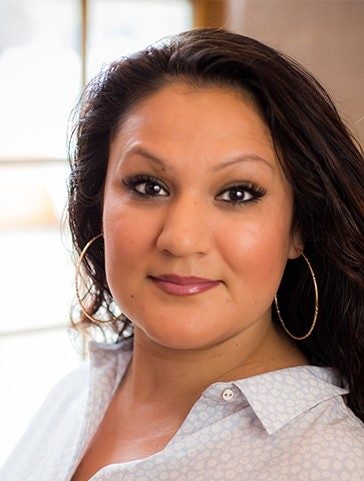
Audrey Rochette, Director of Indigenous Initiatives at George Brown College
Audrey Rochette is an Anishinaabe from Waabadowgang-Whitesand First Nation. As Director, Indigenous Initiatives, she leads George Brown College’s efforts to implement the Truth and Reconciliation Commission’s (TRC) Calls to Action and oversees Indigenization measures as part of the college’s Vision 2030/Strategy 2022 initiative.
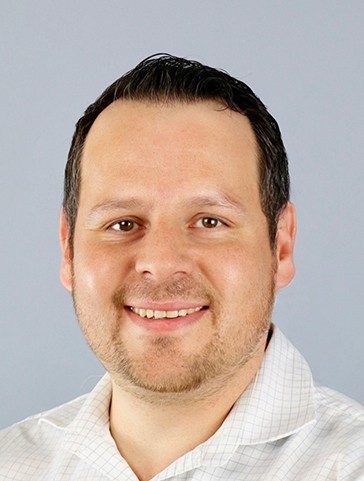
Russell Evans, Assistant Professor of Accounting at the University of Windsor
Russell Evans' Indigenous heritage has roots in both Temagami First Nation (Bear Island) and Matachewan First Nation, and he identifies as both Anishnaabe and European. His research focuses on the financial accountability relationship between Indigenous communities and their various stakeholders, including membership and the Government of Canada. Russell’s current projects include research work on Indigenous governance, consulting on Indigenous business plans and grants, as well as various initiatives to decolonize post-secondary education in Canada.
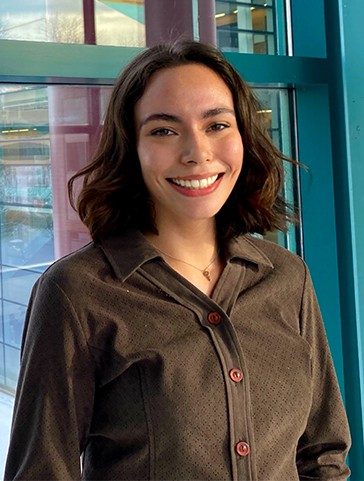
Cassandra Carlson, Fourth-Year Biology and Psychology Student at Brock University
Cassandra Carlson is an Ojibwe from Wauzhushk Onigum Nation. She has just completed her final year of a BSc in Biology and Psychology at Brock University. A recipient of the 2022 NSERC USRA, Cassandra completed her research on conservation towards Indigenous medicinal plants. In April 2022, Cassandra attended the United Nations Permanent Forum on Indigenous Issues (UNPFII) with the goal of forwarding indigenous youth representation. Cassandra is an author on OUSA’s Indigenous student’s policy paper, with several years of experience as an EDI coordinator. Cassandra is a current member of the Jane Goodall Institute of Canada’s Youth Advisory Council and has completed years of research under the supervision of Dr. Liette Vasseur. Cassandra’s future goals are to forward the work of Indigenous science in academia.
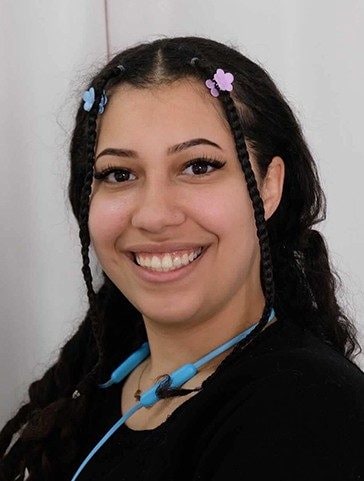
Cheyenne Schmidt-Harlick, Second-Year Psychology Student at York University
Cheyenne Schmidt-Harlick is a non-status First Nation person, specifically Mohawk from Six Nations of the Grand River, also mixed with Mi'kmaw. She is an undergraduate student at York University in her second year of an honours BA program, majoring in Psychology and minoring in Indigenous Studies. She is a student leader at York & work as a Learning Skills Peer with an Indigenous focus in partnership with the Centre for Indigenous Student Services & Learning Skills Services under Student Engagement. She is also a part of the Indigenous Students Association at York as the treasurer, which helps provide cultural programming for Indigenous students.
Watch Recording
Watch the Webinar Recording
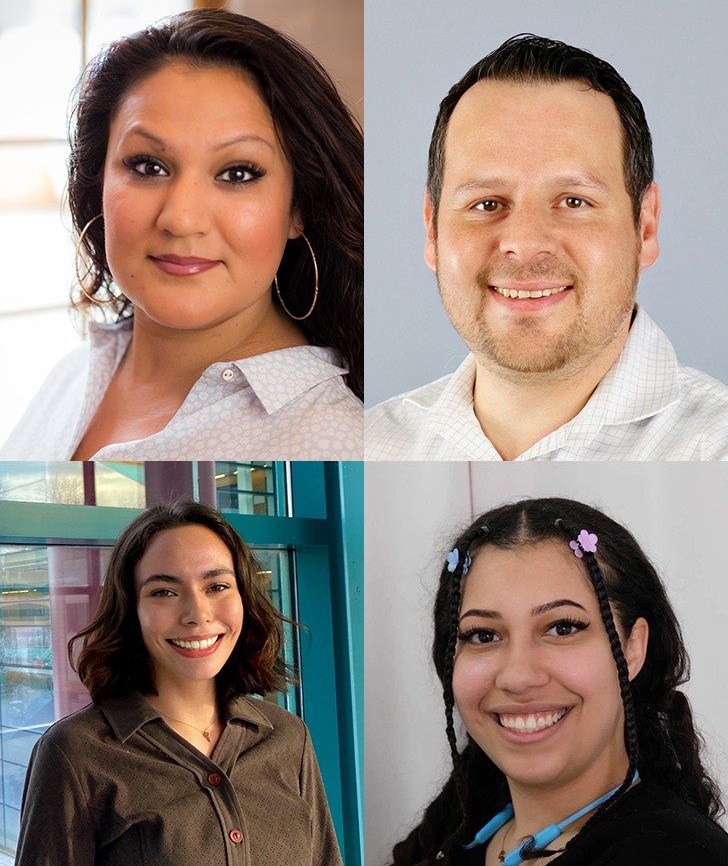
From left to right: Audrey Rochette, Russell Evans, Cassandra Carlson, Cheyenne Schmidt-Harlick
ChatGPT & Academic Integrity in Higher Education.
Higher education has been abuzz with discussions on ChatGPT, with educators taking divergent approaches to its use. While some have banned it outright, others believe it to be a useful tool in enhancing student learning outcomes.
Join us on May 10 at 12:PM for an engaging conversation on ChatGPT and Academic Integrity in Higher Education with field experts Dr. Brenda Stoesz and Dr. John Paul Foxe, who will share their insights and perspectives on the topic.
This webinar is a must-attend for those interested in staying ahead of the curve in the education industry.
Learn More
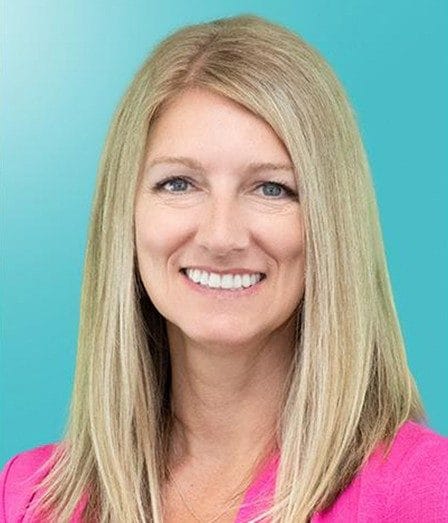
Dr. Brenda Stoesz, Senior Faculty Specialist (Science of Teaching and Learning & Academic Integrity) at the University of Manitoba
Dr. Brenda M. Stoesz is a Senior Faculty Specialist (Science of Teaching and Learning & Academic Integrity) at The Centre for the Advancement of Teaching and Learning, University of Manitoba. In her role, she develops resources and professional development opportunities for post-secondary educators, and conducts research on various topics in higher education, including academic integrity. Dr. Stoesz founded and chairs the Manitoba Academic Integrity Network (MAIN) and is a Co-Editor of the Canadian Perspectives on Academic Integrity.
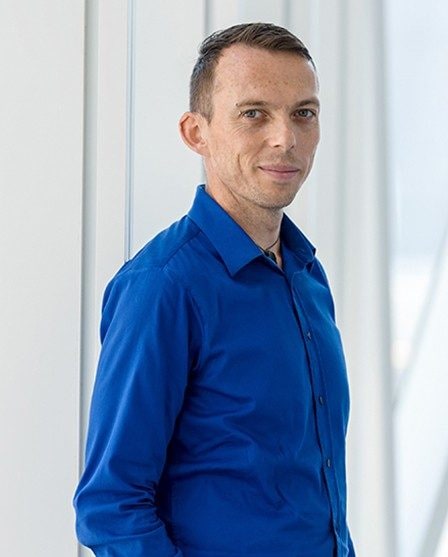
Dr. John Paul Foxe, Director of Academic Integrity Office at Toronto Metropolitan University
Dr. John Paul Foxe is the Director of the Academic Integrity Office at Toronto Metropolitan University. In his role, he leads the development and implementation of strategic plans, programs and initiatives to support the university’s goal of developing and fostering a culture of academic integrity at TMU.
Watch Recording
Watch the Webinar Recording

From left to right: Dr. Brenda Stoesz, Dr. John Paul Foxe